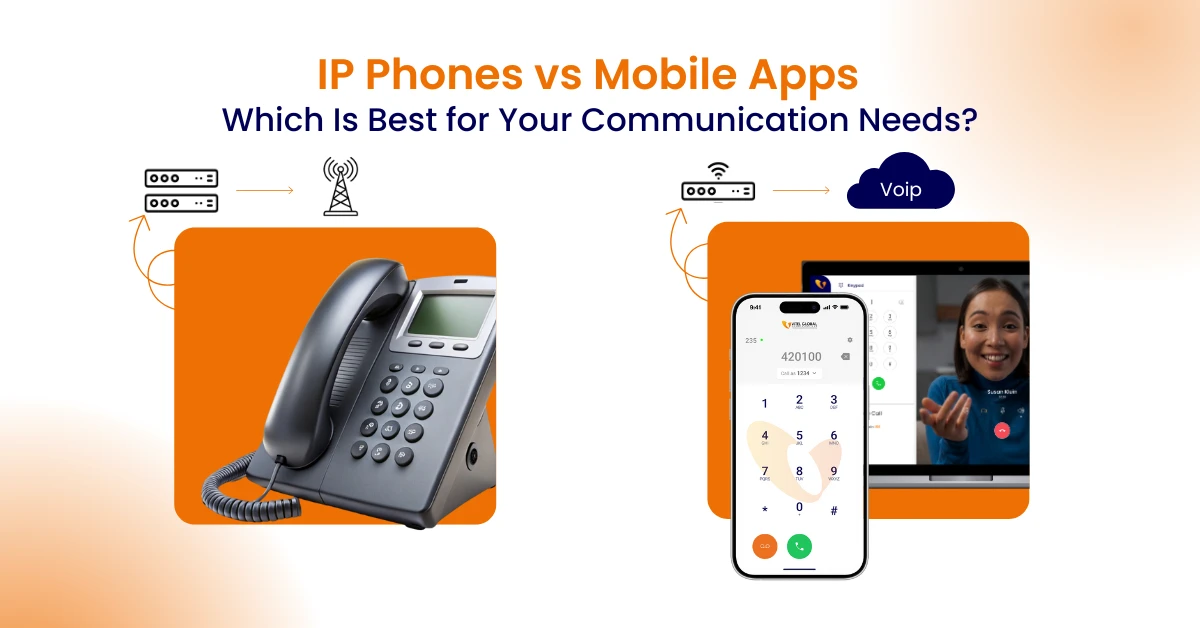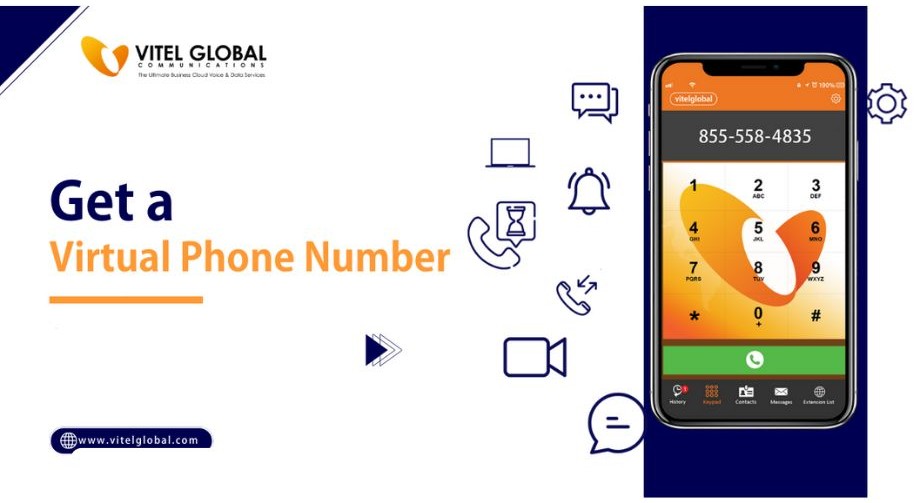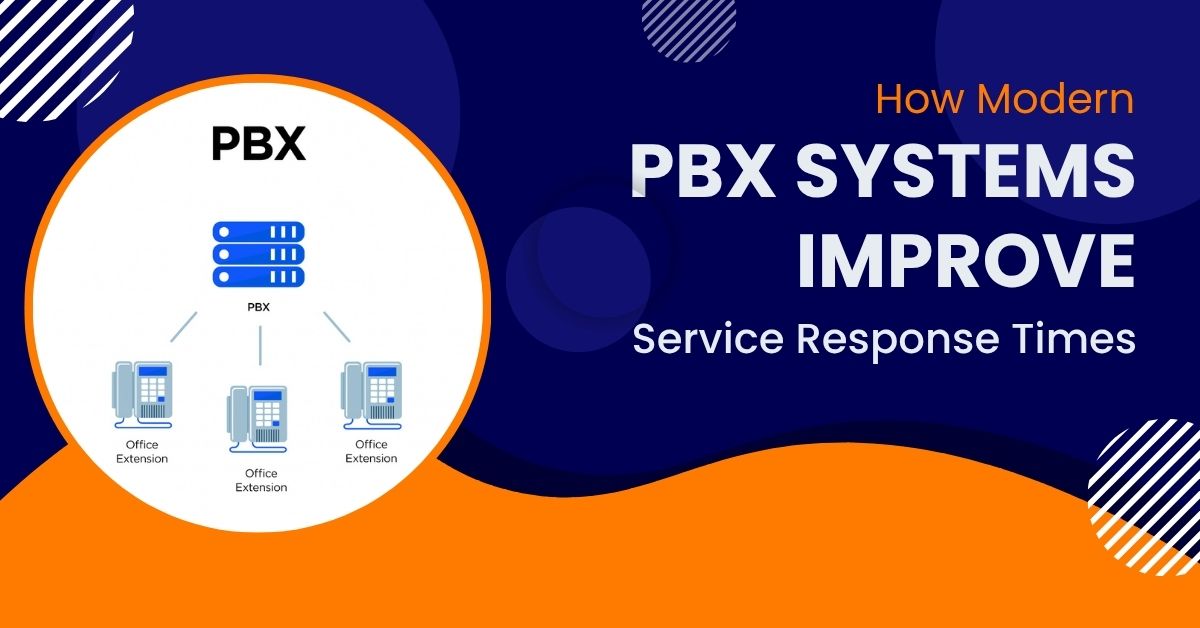IP Phones vs Mobile Apps: Which Is Best for Your Communication Needs?

7 min read
Table of Contents
Introduction to Business Communication
- Business communication relies heavily on reliable and efficient phone systems, including internet protocol (IP) phones and mobile apps.
- With the rise of voice over internet protocol (VoIP) technology, businesses can make and receive phone calls over the internet, reducing costs and increasing flexibility.
- Mobile phones and mobile devices have become essential tools for business communication, offering a range of features and functionalities.
- Understanding the key differences between IP phones and mobile apps is crucial for businesses to make informed decisions about their communication needs.
Effective communication is the backbone of any successful business. As companies grow and adapt to new technologies, the tools they use to facilitate communication must evolve as well. IP phones and mobile apps represent two major advancements in this area, each offering unique benefits. Businesses must carefully evaluate their communication workflows, employee mobility, and customer interaction needs to select the solution that best supports their goals.
Understanding IP Phones
- IP phones use internet protocol to transmit voice and other communications over IP networks.
- They offer advanced features such as call forwarding, call recording, and video conferencing, making them a popular choice for businesses.
- IP phones can be used with a VoIP service provider to make and receive VoIP calls, providing a cost-effective alternative to traditional landline phones.
- They can be used on a computer or mobile device, offering flexibility and convenience for business users.
IP phones are typically physical desk phones designed to connect to a VoIP phone system. They utilize session initiation protocol (SIP) to establish and manage calls over the internet. Many IP phones come equipped with high-definition voice capabilities, multiple line appearances, and programmable keys to streamline daily tasks. Their integration with business phone systems allows for features like recorded calls, call routing, and seamless connectivity with other communication tools. For office environments, IP phones provide a reliable and professional calling experience with consistent call quality.
Explore Vitel Global’s range of IP phone solutions and see how upgrading your business phone system can improve efficiency and call quality.
Mobile Apps for Business
- Mobile apps for business offer a range of features and functionalities, including VoIP calls, team messaging, and video calls.
- They can be used on mobile phones and other mobile devices, providing a convenient and flexible way to communicate on the go.
- Mobile apps can be integrated with business phone systems, offering a seamless and unified communication experience.
- They can also provide additional features such as call routing, voicemail transcriptions, and HD voice, enhancing the overall communication experience.
Mobile apps extend the power of VoIP phone systems to smartphones and tablets, enabling employees to stay connected regardless of location. These softphone apps allow users to make and receive calls using internet access via Wi-Fi or cellular data, bypassing traditional cell towers. This flexibility supports remote workforces and on-the-go professionals by offering access to business phone numbers without needing multiple devices. Many mobile apps also support end-to-end encryption and secure authentication, ensuring that communications remain protected. Integration with existing phone service providers and the ability to port phone numbers from a current provider make mobile apps a practical choice for modern businesses.
Interested in empowering your remote workforce? Request a free demo from Vitel Global to experience how our mobile app solutions keep your team connected anytime, anywhere.
Key Differences
- The key differences between IP phones and mobile apps lie in their functionality, features, and usage.
- IP phones are designed specifically for making and receiving phone calls, while mobile apps offer a broader range of features and functionalities.
- IP phones typically require a physical device, while mobile apps can be used on a variety of devices, including mobile phones and tablets.
- The choice between IP phones and mobile apps depends on the specific needs and requirements of the business.
While both IP phones and mobile apps utilize VoIP technology to transmit calls over the internet, their form factors and user experiences differ significantly. IP phones are ideal for employees who primarily work at a desk and require a dedicated desk phone with physical controls. In contrast, mobile apps offer the device flexibility to connect on smartphones or tablets, making them suitable for employees who travel frequently or work remotely. Businesses should weigh factors such as device flexibility, call quality, feature requirements, and security needs when deciding which solution aligns best with their communication strategy.
Call Quality and Reliability
- Call quality and reliability are critical factors to consider when choosing between IP phones and mobile apps.
- IP phones are designed to provide high-quality voice calls, with features such as HD voice and end-to-end encryption.
- Mobile apps can also provide high-quality voice calls, but may be more susceptible to internet connectivity issues and other factors that can affect call quality.
- Businesses should consider their specific needs and requirements when evaluating the call quality and reliability of IP phones and mobile apps.
IP phones often connect via wired Ethernet or robust Wi-Fi networks, providing stable internet access and consistent voice quality. Their reliance on session initiation protocol and dedicated network infrastructure reduces latency and packet loss, enhancing call clarity. Mobile apps, while convenient, depend on the quality of Wi-Fi or cellular data connections, which can vary based on location or network congestion. This makes call reliability more variable. However, advances in mobile network technology and VoIP protocols have improved mobile app call quality significantly. Businesses should assess their network environments and consider backup options to ensure reliable communication for critical business calls.
Additional Features
- Both IP phones and mobile apps offer a range of additional features that can enhance the communication experience.
- These features may include call recording, video conferencing, and team messaging, among others.
- Businesses should consider their specific needs and requirements when evaluating the additional features of IP phones and mobile apps.
- The choice between IP phones and mobile apps will depend on the specific features and functionalities required by the business.
Modern IP phones and mobile apps often support a rich set of features that go beyond basic voice calls. For example, call recording capabilities allow businesses to maintain records of customer interactions and ensure compliance with regulations. Video conferencing integrations enable face-to-face meetings, while team messaging facilitates quick collaboration. Some solutions offer enhanced security features such as end-to-end encryption to protect sensitive information. When selecting a communication tool, businesses should prioritize the features that align with their operational workflows and customer service goals.
Native Dialer Functionality
- Native dialer functionality is an important feature to consider when choosing between IP phones and mobile apps.
- IP phones typically offer native dialer functionality, allowing users to make and receive calls directly from the device.
- Mobile apps may also offer native dialer functionality, but may require additional setup and configuration.
- Businesses should consider their specific needs and requirements when evaluating the native dialer functionality of IP phones and mobile apps.
Native dialer functionality refers to the ability to use the phone’s built-in dialer interface to make and receive calls. IP phones inherently provide this functionality as dedicated hardware devices. Mobile apps can emulate native dialers but often require users to grant permissions or configure settings to integrate fully with the smartphone’s calling interface. This can affect user experience and ease of use. Businesses should consider how important seamless dialing and call management are for their teams and whether additional setup is feasible.
Business Phone System Security
- Business phone system security is a critical consideration for businesses, as it can help to protect against online attacks and other security threats.
- IP phones and mobile apps can offer a range of security features, including end-to-end encryption and secure authentication.
- Businesses should consider their specific needs and requirements when evaluating the security of IP phones and mobile apps.
- They should also consider factors such as compliance and regulatory requirements when choosing a phone system.
Security is paramount when it comes to business communications. Both IP phones and mobile apps can be configured to use encrypted protocols to safeguard voice data and prevent unauthorized access. Secure authentication methods help ensure only authorized users can access the system. Businesses operating in regulated industries should verify that their chosen phone system meets compliance standards such as HIPAA or GDPR. Additionally, the ability to monitor and audit calls, including recorded calls, can support security and quality assurance efforts.
Protect your business communications with Vitel Global’s secure, compliant VoIP solutions. Contact us to learn more.
[recent-post]
HD Voice Technology
- HD voice technology is an important feature to consider when choosing between IP phones and mobile apps.
- HD voice technology provides high-quality voice calls, with features such as wideband audio and end-to-end encryption.
- IP phones and mobile apps can offer HD voice technology, but may require specific hardware and software configurations.
- Businesses should consider their specific needs and requirements when evaluating the HD voice technology of IP phones and mobile apps.
High-definition (HD) voice technology enhances call clarity by transmitting a wider range of audio frequencies, making conversations sound more natural. Both IP phones and mobile apps can support HD voice, provided the network conditions and device capabilities are sufficient. Implementing HD voice can improve customer satisfaction by reducing misunderstandings and the need for repetition during calls. Businesses should verify that their VoIP system and devices are compatible with HD voice to leverage this benefit.
Upgrade your communication experience with Vitel Global’s HD voice-enabled phone systems
—hear every word clearly.
Frequently Asked Questions (FAQs)
1. What is the main difference between IP phones and mobile apps?
IP phones are physical devices designed specifically for making and receiving phone calls over internet protocol networks, while mobile apps provide VoIP calling and additional communication features on smartphones and other mobile devices.
2. Can I use mobile apps instead of IP phones for my business communication?
Yes, mobile apps can be used as an alternative to IP phones, offering flexibility and device mobility. However, the choice depends on your business needs, call quality requirements, and feature preferences.
3. How does VoIP technology work in IP phones and mobile apps?
VoIP technology converts analog voice signals into digital data packets that are transmitted over an internet connection. Both IP phones and mobile apps use this technology to enable voice communication over IP networks.
4. Are calls made through mobile apps as reliable as those made on IP phones?
Call reliability depends on the quality of your internet connection. IP phones often provide more stable connections in office environments, while mobile apps rely on Wi-Fi or cellular data, which can vary in quality.
5. Can I integrate mobile apps with my existing business phone system?
Yes, many mobile apps offer seamless integration with business phone systems, allowing features like call forwarding, voicemail transcriptions, and team messaging to work across devices.
6. Do IP phones support advanced features like call recording and video conferencing?
Yes, IP phones typically support advanced features such as call recording, video conferencing, and HD voice, making them suitable for comprehensive business communication needs.
7. Is security a concern when using mobile apps for business calls?
Security is important for both IP phones and mobile apps. Many VoIP providers offer end-to-end encryption and secure authentication to protect business communications.
8. Can I make international calls using IP phones or mobile apps?
Both IP phones and mobile apps can facilitate international calls, often at lower costs than traditional cellular networks, depending on your VoIP provider and service plan.
9. What devices can I use to access mobile VoIP apps?
Mobile VoIP apps can be used on smartphones, tablets, and sometimes desktop computers, providing device flexibility and mobility for users.
10. How do I choose between an IP phone and a mobile app for my small business?
Consider factors like call quality, device flexibility, additional features, security, and cost savings. IP phones are ideal for office-based teams needing reliable, high-quality calls, while mobile apps suit remote or on-the-go employees needing flexible communication options.
Published: October 7th, 2025
Subscribe to Our Latest Updates
Get monthly product and feature updates, the latest industry news, and more!







